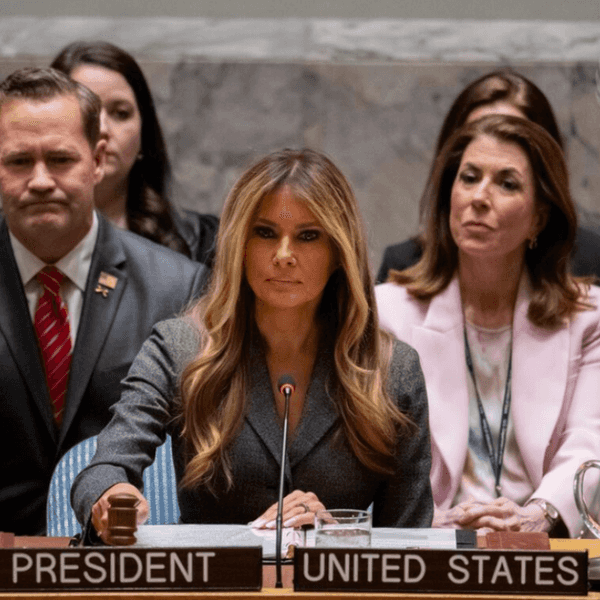Sportsmen And Environmentalists Team Up To Fight Trump Energy Plans

WASHINGTON/SALT LAKE CITY, Utah (Reuters) – When Republican Congressman Jason Chaffetz of Utah introduced legislation last month to transfer about 3 million acres of federally-held public land to state control, he was bombarded by thousands of angry phone calls, letters, and social media posts urging him to back off.
The pressure came not only from liberal environmentalists — but also from gun-toting, often conservative outdoors enthusiasts who are central to Chaffetz’ political base. Both camps fear that transferring federal lands to state control could open them up to drilling and coal mining rather than recreation and preservation.
“I hear you,” Chaffetz wrote in a post on his Instagram account announcing the withdrawal of the bill. “I am a proud gun owner, hunter, and love our public lands.”
Chaffetz’s office did not respond to requests for comment on his reversal.
Outdoor sporting groups — long associated with conservatism because of their support for guns rights and small government — are now collaborating with the environmental left to fight U.S. President Donald Trump’s push to open more public lands to energy development. Such areas include national forests, parks, and Native American tribal territories that account for about one fifth of the United States.
Recent funding data from the Foundation Center database, which aggregates information from tax filings, shows groups such as the Backcountry Hunters and Anglers and the Outdoor Alliance have accepted grants from big environmental and liberal foundations, including the Turner Foundation and the William and Flora Hewlett Foundation.
The Hewlett Foundation gave $100,000 in 2015 to Backcountry, a conservation group created in 2004. The money accounted for more than two-thirds of its foundation grants that year, and Backcountry told Reuters it is an annual gift with no conditions.
Hewlett said it supports Backcountry because of its “critical work to preserve America’s outdoor heritage of hunting and fishing and protect wild places.”
The Turner Foundation gave an unrestricted donation of $100,000 to the Outdoor Alliance in 2015, the group’s only foundation grant that year.
“Conservation is a nonpartisan issue, and it is a shame it is being politicized,” said Judy Adler, president of the Turner Foundation.
The Environmental Policy Alliance, a pro-development organization, has said environmentalists finance sportsmens’ groups as a way to provide conservative cover for a liberal agenda — turning the outdoors groups into “green decoys.”
The alliance, which says it aims to “uncover the funding and hidden agendas” of environmentalists, did not respond to requests for comment.
Highlighting the odd-bedfellows nature of such collaborative lobbying, the Backcountry Hunters and Anglers counts the president’s son, Donald Trump Jr., as a lifetime member.
Officials at the Trump Organization, where Donald Trump Jr. is an executive, did not respond to requests for comment. A Trump administration official declined to comment.
Trump has made previous statements opposing the transfer of federal land to states, but has strongly supported more energy development in such areas.
BIGGER THAN THE COAL INDUSTRY
The outdoor recreation industry is concentrated heavily in conservative western states and generates more than $640 billion annually, according to the Outdoor Industry Association, which represents hundreds of companies and organized the pressure campaign against Chaffetz. That figure would make the outdoors industry about 10 times bigger than the coal industry.
The cause of protecting public lands is among precious few issues that bind U.S. conservatives and liberals. Outdoors companies such as Patagonia and North Face are building lobbying strength quickly in response to rising threats to federal lands, said Jessica Wahl, government affairs manager for the Outdoor Industry Association.
“We are a bipartisan industry,” Wahl said. “We are stronger when talking with a unified voice.”
In one example of that clout, more than 30 companies this week — including Patagonia, REI, North Face, KUHL, and others — wrote an open letter to Utah’s Republican Governor Gary Herbert saying they will try to force an annual outdoor retailers’ convention out of the state unless he protects public lands.
Patagonia had earlier announced it would boycott the convention — which brings Utah about $45 million each year — because Herbert had opposed a move by former Democratic President Barack Obama to protect 1.3 million acres near the iconic Bears Ears buttes.
Tawney, of Backcountry Hunters and Anglers, said he supports partnerships with environmental groups to advocate for wilderness conservation. But he dismisses assertions that the outdoor enthusiast organizations have become pawns of the environmental left.
“Everything we do is about hunting and fishing,” he said.
Some traditional environmental lobbying organizations such as the Sierra Club say they are happy to let outdoor sports advocates be the public face of the conservation movement. The arguments of sportsmen tend to resonate better with business-friendly Republicans and their constituents in rural communities, he said.
“They speak from more of an economic voice,” said Matt Kirby, who directs the Sierra Club’s public lands policy work for western states.
FISHING WITH TRUMP JR.
Elsewhere, local outdoor industry companies have had success engaging with the U.S. Bureau of Land Management (BLM) to have more input on local oil and gas leasing decisions.
Ashley Korenblat — owner of Utah-based mountain biking outfitter Western Spirit Cycling and a member of the Outdoor Industry Association — was instrumental in shaping the Moab Master Leasing Plan, which preserves bike trails near Moab, Utah while allowing some oil and gas drilling.
Many hunters, fishermen, and campers may not think of themselves as conservationists, Korenblat said, but “when you can no longer get to the river where you fish — when the trail you’ve been riding has been replaced by a 30-foot gravel road to a well — suddenly you really care.”
Some of the most passionate conservation advocates are in Utah, where two-thirds of the state is federally protected.
“I’m just disgusted,” said Grant Bench, a fly-fishing guide who works with Sundance Mountain Resort. “Do we see oil pumps in Yellowstone next?”
Last winter, Bench said, he took Donald Trump Jr. fishing on the Provo River. Bench told him he wants future generations of his family to enjoy the same pristine wilderness that currently sustains Bench’s livelihood.
Trump Jr. agreed that preserving public lands is important, said Bench, who hopes Trump’s son will carry that message to his father.
Reuters could not reach Donald Trump Jr. for comment. Bench provided a photograph of himself with Trump Jr. standing outside in waders, waterproof pants used by fly fishermen to walk through streams.
The conservation battles have made Bench start to question his traditionally conservative politics.
“I’m leaning further left every day that this stuff goes on,” he said.
(Editing by Richard Valdmanis and Brian Thevenot)
IMAGE: The view from Comb Ridge is pictured in Utah’s Bears Ears area of the Four Corners Region, Utah, U.S. December 18, 2016. REUTERS/Annie Knox








